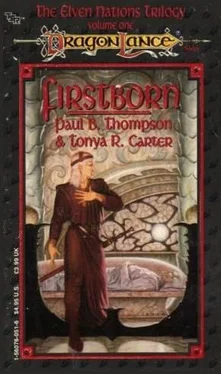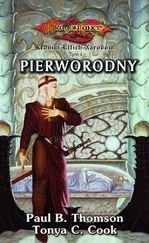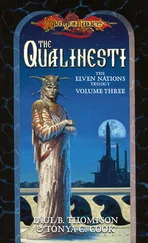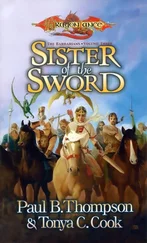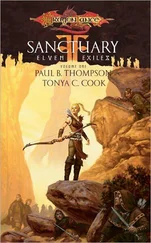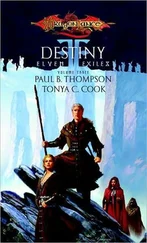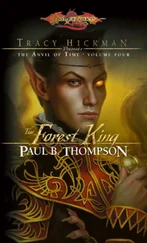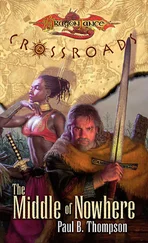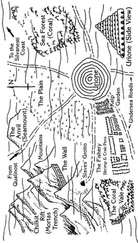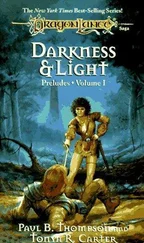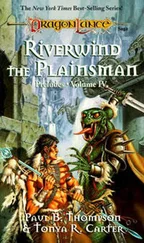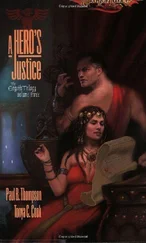Paul Thompson - Firstborn
Здесь есть возможность читать онлайн «Paul Thompson - Firstborn» весь текст электронной книги совершенно бесплатно (целиком полную версию без сокращений). В некоторых случаях можно слушать аудио, скачать через торрент в формате fb2 и присутствует краткое содержание. Жанр: Фэнтези, на английском языке. Описание произведения, (предисловие) а так же отзывы посетителей доступны на портале библиотеки ЛибКат.
- Название:Firstborn
- Автор:
- Жанр:
- Год:неизвестен
- ISBN:нет данных
- Рейтинг книги:3 / 5. Голосов: 1
-
Избранное:Добавить в избранное
- Отзывы:
-
Ваша оценка:
- 60
- 1
- 2
- 3
- 4
- 5
Firstborn: краткое содержание, описание и аннотация
Предлагаем к чтению аннотацию, описание, краткое содержание или предисловие (зависит от того, что написал сам автор книги «Firstborn»). Если вы не нашли необходимую информацию о книге — напишите в комментариях, мы постараемся отыскать её.
Firstborn — читать онлайн бесплатно полную книгу (весь текст) целиком
Ниже представлен текст книги, разбитый по страницам. Система сохранения места последней прочитанной страницы, позволяет с удобством читать онлайн бесплатно книгу «Firstborn», без необходимости каждый раз заново искать на чём Вы остановились. Поставьте закладку, и сможете в любой момент перейти на страницу, на которой закончили чтение.
Интервал:
Закладка:
“Why didn’t you tell me sooner?” Sithas asked, his voice softening.
“You weren’t here. You were sleeping by yourself.”
“Am I so unapproachable?”
She fingered the edge of her embroidered collar “Yes, you are.”
“You have no problem getting what you want from others,” Sithas went on heedlessly. “You collect gifts and compliments as a child picks flowers in a field. Why can’t you speak to me? I am your husband.”
“You are the elf I married,” she corrected, “not the elf I loved.”
Sithas stood quickly. “I’ve heard enough. In the future you.”
She moved toward him. “Will you listen to me for once? If you insist on risking your life on foolish errands, then you must give me a child. Our marriage can mean something then. An heir needs an heir. You want a son; I need a child.”
The prince folded his arms, annoyed at her pleading tone. That emotion confused Sithas somewhat. Why did her pleading irritate him? “Perhaps it is the wisdom of the gods that this happened,” he said. “It is not a good time to start a family.”
“How can you say that?” she asked.
“It is Matheri’s own truth. My life is not my own. I have to live for the nation. With all this trouble in the West, I may even have to take up arm for the speaker’s cause.”
Hermathya laughed bitterly. “You, a warrior? You have the wrong twin in mind. Kith-Kanan is the warrior. You are a priest.”
Coldly Sithas told her, “Kith-Kanan is not here.”
“I wish to Astarin he was! He would not have left me last night!” she said harshly.
“Enough!” Sithas went to the door. With unmatched politeness, he said, “Lady, I am truly sorry to have missed the time, but it is done and no peace will come from dwelling on lost chances.” He went out. Behind him, Hermathya dissolved in furious tears.
Sithas descended the steps, his face set hard as granite. Servants and courtiers parted for him as he went. All bowed, as was the custom, but none dared speak. Two fine chairs were set up in the audience hall of the Tower of the Stars. One, short-legged and plush, was for Dunbarth, ambassador from Thorbardin. The second was a tall piece of furniture, its elegantly wrought curves gilded. Here sat Teralind. Her husband, the titular ambassador, sat in his special chair beside her. Praetor Ulwen did not speak and after a while it was easy to forget he was even present.
Sithel sat on his throne, of course, and Sithas stood by his left hand. The rest of the floor was taken up by courtiers and servants. Ulvissen, never far from Teralind and the ambassador, hovered behind the lady’s golden chair, listening much and speaking little.
“The territory in question,” Sithel was saying, “is bordered on the south by the bend of the Kharolis River, on the west by the city of Xak Tsaroth, on the east by the Khalkist Mountains, and on the north by the region where the Vingaard River is born on the great plain. In the time of my father, this region was divided into three areas. The northernmost was named Vingaardin, the central was called Kagonesti, and the southernmost was Tsarothelm.”
Dunbarth waved a beringed hand. “Your Highness’s knowledge of geography is considerable,” he noted with exaggerated politeness, “but what is the point in your lecture?”
“As I was about to say, in the time of my father, Silvanos, these three provinces were unclaimed by any of our nations. They were ruled, and ruled poorly, by local lords who extorted taxes from the common folk and who warred constantly with each other.”
“Such is not the case today,” Teralind interjected.
“There is considerable violence in this area still,” Sithel replied, “as evidenced by the massacre of fifty of my guard by a large force of mounted men.”
Silence ensued. The elven scribes, who had been taking down every word spoken, held their styluses poised over their pages. Dunbarth looked at Teralind curiously.
“You do not object, Lady, to the speaker’s description of the marauders as ‘men’ ?” he asked pointedly, leaning forward on one elbow.
She shrugged her green velvet clad shoulders, and Ulvissen sidled closer to the back of her chair. “The emperor does not rule the entire race of men,” she allowed. Sithas could almost hear the unspoken yet at the end of Teralind’s statement—“any more than the king of Thorbardin rules all dwarves. I don’t know who these bandits are, but if they are men, they are not men of Ergoth.”
“Certainly not,” Sithel continued smoothly. “You will not deny, though, that the emperor has done nothing to discourage the large number of human settlers who cross the plain and descend the rivers by boat and raft. They are displacing both the Kagonesti and those Silvanesti who have moved west to live. It must stop.”
“There is not room enough in Ergoth for everyone to live and work, nor is there land enough to grow the food needed to feed them all,” countered Teralind. “Why is it strange that human settlers should leave the boundaries of the empire and wander east into the region claimed by the Silvanesti, when that region is so sparsely settled?”
“None have tried to settle in Thorbardin,” said Dunbarth unhelpfully.
Prince Sithas gestured to a scribe, who brought him a parchment scroll filled with tiny, precise writing. Two large wax seals were affixed to the bottom of the paper. “This is our copy of the agreement made between Speaker Sithel and Emperor Tion, dated four hundred years ago. It specifically forbids Ergoth from colonizing Vingaardin without the approval of the Speaker of the Stars.”
“Emperor Tion was an old man. Many of the works done by him late in his life were faulty,” Teralind commented tactlessly. Ulvissen, who’d been stroking his auburn beard in thought, leaned down and whispered in her ear. She nodded and continued, “No less than six of Tion’s treaties have been repudiated over the years since his death. The treaty Prince Sithas holds is therefore of doubtful standing.” At her side, the aged praetor stirred vaguely. Teralind paid no attention.
Dunbarth slid forward and dropped out of his chair. He tugged his tunic down smoothly over his barrel chest and said, “As I recall, it was Tion’s plan to invade and conquer Sancrist, but he feared the elven nation would retaliate against his eastern border. For that reason he struck a deal with Speaker Sithel.”
The prince had returned the parchment to the scribe. Curious, he asked, “And why did the invasion of Sancrist not take place?”
Dunbarth laughed merrily. “The Ergothian generals pointed out how difficult it would be to rule an island full of gnomes. The drain on the empire’s treasury would have been enormous!” Some scattered laughter drifted through the hall. Sithel rapped on the floor with his five-foot-long regal staff, and the snickering died.
“I believe what you say, Lady Teralind,” Sithel noted blandly. “His Majesty Tion must have been distracted to imagine he could conquer and rule the gnomes, though he did not really seem so when I met him.” Teralind flushed slightly at this reminder of the speaker’s great life span.
“But that doesn’t change the fact that human settlers and human bandits have been taking life and land away from my subjects.”
“If I may say something,” Dunbarth interrupted, walking around the side of his chair. “Many people come to Thorbardin to buy our metals, and we have heard a great deal about the troubles on the Plain. I think it is unfair to say, Your Highness, that it is simply a matter of humans pushing elves out. I understand that many of the bandits are elves themselves, of the Kagonesti race.” He rubbed the broad toe of his left boot against the trousers of his right leg to remove a smudge on the brilliant shine. “And some of the bandits are half-elves.”
Читать дальшеИнтервал:
Закладка:
Похожие книги на «Firstborn»
Представляем Вашему вниманию похожие книги на «Firstborn» списком для выбора. Мы отобрали схожую по названию и смыслу литературу в надежде предоставить читателям больше вариантов отыскать новые, интересные, ещё непрочитанные произведения.
Обсуждение, отзывы о книге «Firstborn» и просто собственные мнения читателей. Оставьте ваши комментарии, напишите, что Вы думаете о произведении, его смысле или главных героях. Укажите что конкретно понравилось, а что нет, и почему Вы так считаете.
